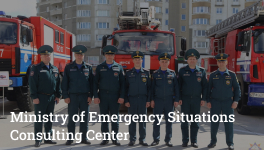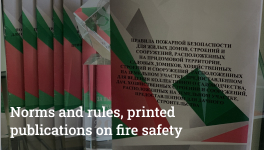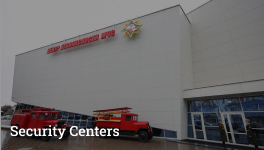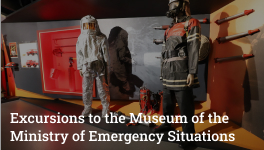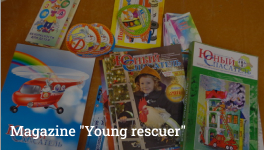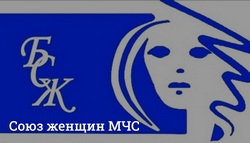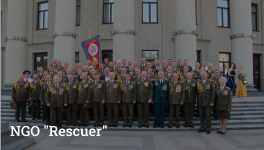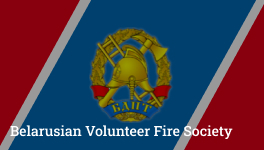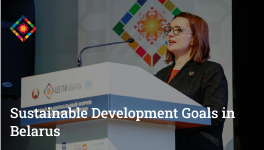Expert support to newcomer countries
Since the beginning of the first nuclear power program, the Republic of Belarus has successfully undergone all stages of its regulatory infrastructure development in the field of nuclear and radiation safety in accordance with the IAEA requirements:
independent regulatory body (Gosatomnadzor) was established;
new branch of legislation - nuclear law - was defined;
legislative framework of the main functions of the regulatory body was identified, and the relevant processes such as licensing, inspections, safety reviews were formed and are being implemented;
regulatory legal base was formed, and a system of technical requirements in the field of nuclear and radiation safety was developed and harmonized;
participation in the global nuclear safety regime, including the Convention on Nuclear Safety, the Joint Convention on the Safety of Spent Fuel Management and on the Safety of Radioactive Waste Management, and the Safeguards Agreement in relation to the Treaty on the Non-Proliferation of Nuclear Weapons;
system of accounting and control of nuclear materials and ionizing radiation sources was formed;
systems for advanced training and knowledge evaluation of specialists working in this area were formed;
system of requirements for radioactive waste management was formed;
system of technical support organizations (TSOs) of the regulatory body was established;
requirements for an integrated management system and safety culture of all stakeholders in the field of atomic energy and ionizing radiation sources use were defined;
policy in the field of nuclear and radiation safety was defined;
system of public informing was organized, etc.
The achievements of the country in terms of establishing the regulatory infrastructure for nuclear and radiation safety were noted by the IAEA IRRS and the IRRS follow-up missions, which took place in 2016 and 2021, and were also repeatedly emphasized at the meetings of the contracting parties to the Convention on Nuclear Safety, the Joint Convention on the Safety of Radioactive Waste Management and on the Safety of Spent Nuclear Fuel Management.
The Belarusian experience is unique in terms of integrated adjustment of both approaches of the technology supplier country – the Russian Federation and the EU approaches to the national legislation and activities of the regulatory body on the basis of long-term research of the best foreign practices and obtaining experience in their application, taking into account
the features of the nuclear power program implementation under the Russian project.
Since 2014, the Republic of Belarus has been participating in the work of the Regulators Cooperation Forum (RCF), in the framework of which the Belarusian experience in the development of regulatory infrastructure was repeatedly rated by the Forum and recommended as a successful example
of its formation to other newcomer countries.
In this regard, the Belarusian regulatory authority stands ready to offer its competencies to transfer its experience to newcomer countries that are about to or are already implementing the first nuclear power programs under the projects of the State Atomic Energy Corporation Rosatom (in the following areas
1. Establishment of a regulatory body in a country implementing its first nuclear power program:
formation of the regulatory body's structure;
preparation of position profiles;
recruitment of personnel;
definition of functions and responsibilities;
material support;
establishment of a training system for the regulatory body;
development of competences of the regulatory body's specialists;
fulfillment of international obligations in terms of nuclear and radiation safety.
2. Regulation - the legal base:
establishment of the nuclear law system:
nuclear and radiation safety policy;
laws;
administrative regulations and procedures, including licensing and permitting activities, inspection activities, organizational requirements for the nuclear security system, taking into account the requirements of the Safeguards Agreement and the Convention on the Physical Protection of Nuclear Material and Nuclear Facilities;
criteria, safety requirements (norms and guidelines);
establishment of a requirements system for the operating organization (leadership, safety management), approaches to cooperation and responsibility at the construction stage;
formation of approaches to the use of the legislation of the technology supplier country at the NPP construction stage, including law enforcement;
formation of approaches to the application of standards of the technology supplier country.
3. Inspections:
development and implementation of approaches to the oversight organization at different stages of the life cycle of a nuclear facility (construction, commissioning, operation of NPPs), development of practical tools to conduct oversight activities in accordance with the mentioned approaches;
integration of all types of oversight (construction, fire, industrial, sanitary and hygienic, etc.) in the formation of a common decision on the fulfillment of nuclear and radiation safety requirements (formation of
a common case, accounting, law enforcement);
development of oversight programs, checklists for specific areas at all stages of the life cycle of a nuclear facility;
off-site oversight (equipment manufacturing, other critical safety issues).
4. Licensing and permitting activities:
formation of proposals for the procedure at all stages of the NPP life cycle: sequence, establishment of requirements for documents, procedure for organizing interaction with all stakeholders, including consideration of the process dynamics;
formation of the licensing plan and requirements to the operating organization;
development of a list of works and services, and licensed activities;
development of the regulatory framework for issuing permits by the regulatory authority;
organization of licensing procedures as a process.
5. Safety review, peer reviews:
preparation of a list of competencies that are required for the regulatory body in order to arrange safety review, acceptance of the review results;
preparation of statements of work for conducting safety reviews;
preparation of statements of work for evaluation of draft technical solutions arising in the course of the NPP construction;
formation of requests for additional information;
procedure of conducting safety review;
arrangement of consultations within the framework of safety review;
identification of a list of documents for compliance with the review procedure;
conduction of verification calculations, including probabilistic and deterministic safety analysis using codes and tools for safety reviews;
organization of the review process with regard to the available resources of the regulatory body and external organizations;
organization of the process of obtaining advisory services on peer reviews.
6. Scientific and technical support:
identification of the scope/needs for expert competencies;
formation of a list of technical support organizations, considering the competencies required for the regulating body to conduct safety reviews, assessments of licensees' (license applicants') compliance with licensing requirements and conditions, and oversight;
creation of a scientific and technical support center to ensure support of regulatory activities;
scientific support – initiation of scientific tasks for the system of technical and scientific support of regulatory activities in the field of nuclear and radiation safety, taking into account the prospects for the development of nuclear and radiation technologies in the country in terms of identification of new challenges, determination of promising areas and topics of scientific researches to be developed, development of legislation and other issues;
formation of a knowledge management system, creation of a knowledge portal as one of the knowledge management tools, and other process automation tools.
7. Emergency preparedness and response
organization of the crisis center of the regulatory authority, including material and technical support, in particular through the implementation of international technical assistance projects (mobile laboratory, equipment base, software (codes), etc.);
conducting inspections during emergency trainings and drills, arranging joint exercises with the crisis center of the regulatory authority;
organization of training of emergency response technologies.
8. Nuclear security, accounting and control of nuclear material, ionizing radiation sources:
assistance in preparation of regulatory requirements;
cooperation with the IAEA representatives visiting the site within the framework of nuclear material control;
organization of state accounting of nuclear material, ionizing radiation sources, and radioactive waste (software).
9. Preparation of infrastructure for spent nuclear fuel and radioactive waste (through state regulation and state management):
development of strategies for RW and SNF management;
establishment of a national operator for RW management;
scientific and methodological support of activities on RW and SNF management;
RW management of historical legacy (nuclear legacy facilities).
10. Organization of the regulatory body's activities:
development of policy, strategy and regulatory concept;
formation of the integral management system (IMS) of the regulatory authority (definition of the main processes, establishment of requirements to the processes and documentation of the management system, elaboration of management tools, assessment and improvement of the IMS of the regulatory authority);
formation and functioning of internal structures of the regulatory authority (working groups, councils, commissions);
development of procedures for formation, maintenance and evaluation
of safety culture in the regulatory body;
preparation of internal instructions for inspectors on compliance with the code of professional conduct, occupational safety, organization of professional training;
implementation and operation of the Intellectual Information System of the Employee of Gosatomnadzor to ensure control (supervision) in the field of nuclear and radiation safety, which was developed on the basis of open source software.
11. International cooperation:
fulfillment of the conventional toolset, including the implementation of conventional requirements into the legislation;
preparation for the IAEA review missions;
preparation of bilateral and multilateral agreements and memorandums;
participation in the IAEA technical cooperation projects, the EU INSC program, and multilateral professional forums.
12. Information activities:
preparation and conducting of public hearings before taking important regulatory decisions;
interaction with stakeholders, including regulated organizations to reach a joint understanding of regulatory requirements;
establishment and maintenance of various communication channels with stakeholders inside the country and abroad, including the general public and professional community;
identification of target groups and formation of informational packets adapted according to their needs;
preparation of annual reviews of the state of nuclear and radiation safety;
organization of media outreach, including creation of a pool of speakers and development of their skills;
organization of peer-to-peer communications.
13. Safety culture:
development of safety culture in the regulatory body;
cooperation aimed at ensuring safety culture in the regulated organizations.
14. Conducting stress tests according to the EU format and regulations (organization at the construction stage).
15. Radiation safety and radiation protection (regulatory requirements, cooperation with the regulatory authority in the field of public health, etc.):
radiation safety assurance at the construction, commissioning and operation stages of the NPP;
characteristics of oversight activities to ensure radiation safety during scheduled preventive maintenance;
control of the development and implementation of radiation control and radiation monitoring programs;
monitoring of radioactive emissions and discharges.
16. Transportation (licensing of nuclear materials (nuclear fuel) transportation, development of the regulatory framework, distribution of responsibilities.
Format:
working meetings (workshops) – presentations + practical participation in inspections at the site of a nuclear power plant under the construction, inspections at manufacturers' plants;
expert missions – on-site visits to provide assistance in preparation
of documents (e.g., inspection (verification) programs, drafts of legal and regulatory acts, guidelines, statements of work, etc.);
consultations on specific areas of activity.
Forms of interaction – contractual arrangements with Scientific and Technical Centre for Nuclear and Radiation Safety (CNRS) in terms of providing technical and scientific support services; through the regulatory body – via videoconferencing, on-site visits, working at the site of inviting organization.
Back
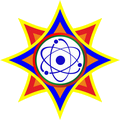
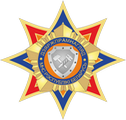 Department for Nuclear and Radiation Safety of the Ministry for Emergency Situations of the Republic of Belarus
Department for Nuclear and Radiation Safety of the Ministry for Emergency Situations of the Republic of Belarus




